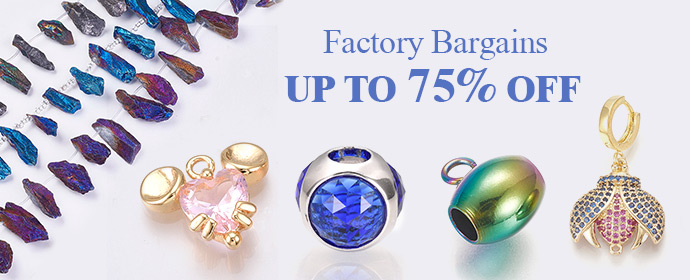Introduction:
As we age, our skin naturally starts to show signs of aging. This can include wrinkles, fine lines, age spots, and loss of elasticity. While there is no way to stop the aging process completely, there are steps we can take to slow it down and keep our skin looking its best.
In this blog post, we will discuss skincare for aging skin. We will cover the different types of skincare products that are available, as well as the best practices for using them. We will also provide you with some tips on how to age gracefully and keep your skin looking its best.
Types of Aging Skin:

- Sensitive Skin: Aging sensitive skin can be more prone to dryness, redness, and irritation. This is because the skin barrier, which protects the skin from harsh environmental factors, becomes weaker with age.
- Oily Skin: Aging oily skin can be more prone to breakouts and clogged pores. This is because the sebaceous glands, which produce oil, can become more active with age.
- Dry Skin: Aging dry skin can be more prone to flaking and roughness. This is because the skin produces less oil as we age, which can lead to dryness.
- Combination Skin: Aging combination skin can be a mix of oily and dry skin in different areas of the face. This is because the skin can become more oily in some areas and more dry in others as we age.
Best Practices for Skincare for Aging Skin:
- Cleanse your face twice a day with a gentle cleanser. This will remove dirt, oil, and makeup that can clog pores and lead to breakouts. Look for a cleanser that is labeled as “non-comedogenic,” which means it will not clog pores.
- Use a moisturizer that is appropriate for your skin type. A good moisturizer will help to keep your skin hydrated and prevent it from drying out. Look for a moisturizer that is labeled as “fragrance-free” and “hypoallergenic” if you have sensitive skin.
- Apply sunscreen every day, even on cloudy days. Sunscreen is essential for protecting your skin from the sun’s harmful rays, which can cause premature aging. Look for a sunscreen with an SPF of 30 or higher.
- Exfoliate your skin regularly. Exfoliating helps to remove dead skin cells and reveal the fresh, new skin underneath. Look for an exfoliator that is labeled as “gentle” and “non-abrasive.”
- Use anti-aging products. There are a number of anti-aging products available that can help to reduce the appearance of wrinkles, fine lines, and age spots. Look for products that contain ingredients such as retinol, hyaluronic acid, and vitamin C.
- Get enough sleep. Sleep is essential for healthy skin. When you sleep, your body produces growth hormones that help to repair damaged skin cells. Aim for 7-8 hours of sleep per night.
- Eat a healthy diet. Eating a healthy diet that is rich in fruits, vegetables, and whole grains can help to keep your skin looking its best. These foods contain antioxidants that can protect your skin from damage.
- Manage stress. Stress can take a toll on your skin. Find healthy ways to manage stress, such as yoga, meditation, or spending time in nature.
Products and Ingredients for Aging Skin:

- Retinol: Retinol is a type of vitamin A that can help to reduce the appearance of wrinkles, fine lines, and age spots. It is a powerful anti-aging ingredient, but it can also be irritating to some people. Start with a low-dose retinol product and gradually increase the dosage as your skin gets used to it.
- Hyaluronic acid: Hyaluronic acid is a natural substance that helps to keep skin hydrated. It can also help to plump up the skin and reduce the appearance of wrinkles. Look for a product that contains hyaluronic acid as the main ingredient.
- Vitamin C: Vitamin C is an antioxidant that can help to protect skin from the sun’s harmful rays. It can also help to brighten the skin and reduce the appearance of dark spots. Look for a product that contains vitamin C as the main ingredient.
- Niacinamide: Niacinamide is a form of vitamin B3 that can help to improve skin tone and texture. It can also help to reduce the appearance of enlarged pores. Look for a product that contains niacinamide as the main ingredient.
- Alpha hydroxy acids (AHAs): AHAs are a type of exfoliating acid that can help to remove dead skin cells and reveal the fresh, new skin underneath. AHAs can also help to improve skin texture and reduce the appearance of wrinkles. Look for a product that contains AHAs as the main ingredient.
- Beta hydroxy acids (BHAs): BHAs are a type of exfoliating acid that can help to remove oil and dirt from pores. This can help to prevent breakouts and keep skin clear. Look for a product that contains BHAs as the main ingredient.
Tips for Specific Skin Types:
- Skincare for Aging Sensitive Skin: If you have sensitive skin, use products that are gentle and non-irritating. Look for products that are labeled as “hypoallergenic” or “fragrance-free.” You may also want to avoid products that contain harsh chemicals, such as alcohol or essential oils.
- Skincare for Aging Oily Skin: If you have oily skin, use products that will help to control oil production and prevent breakouts. Look for products that are oil-free or non-comedogenic. You may also want to use products that contain ingredients that help to exfoliate the skin, such as alpha hydroxy acids (AHAs) or beta hydroxy acids (BHAs).
- Skincare for Aging Dry Skin: If you have dry skin, use products that will help to hydrate and nourish the skin. Look for products that contain humectants, such as hyaluronic acid, and emollients, such as shea butter.
- Skincare for Aging Combination Skin: If you have combination skin, use products that are designed for combination skin. These products will help to balance the oil and moisture levels in the skin.
Homemade Remedies for Skin Care for Aging with Acne:

- Honey: Honey is a natural antibacterial and anti-inflammatory agent that can help to treat acne. It can be applied to pimples directly or used as a mask. It is also a humectant, which means it draws moisture into the skin, helping to keep it hydrated.
- Oatmeal: Oatmeal is a natural exfoliator that can help to remove dead skin cells and reveal fresh, new skin underneath. It can also help to reduce inflammation. To make an oatmeal mask, combine 1/2 cup of ground oatmeal with enough water to make a paste. Apply the paste to your face and let it sit for 15 minutes before rinsing it off.
- Cucumber: Cucumber is a natural astringent that can help to tighten pores and reduce oil production. It can be applied to the face as a mask or used as a toner. To make a cucumber toner, blend 1 cucumber with 1 cup of water. Strain the mixture and store it in a bottle in the refrigerator. Apply the toner to your face with a cotton ball after cleansing.
- Tea Tree Oil: Tea tree oil is a natural antiseptic that can help to kill the bacteria that cause acne. It can be applied to pimples directly or used as a toner. Dilute tea tree oil with water before applying it to your skin.
- Aloe Vera: Aloe vera is a natural moisturizer that can help to soothe irritated skin. It can also help to reduce inflammation. Apply aloe vera gel directly to pimples or use it as a moisturizer after cleansing.
Conclusion:
Aging is a natural part of life, but there are steps we can take to slow down the aging process and keep our skin looking its best. By following the tips in this blog post, you can help your aging skin look its best.
I hope this blog post has been helpful. If you have any questions, please feel free to leave a comment below.
Images credit goes to Google
Recommend0 recommendationsPublished in Makeup, Skin Care


